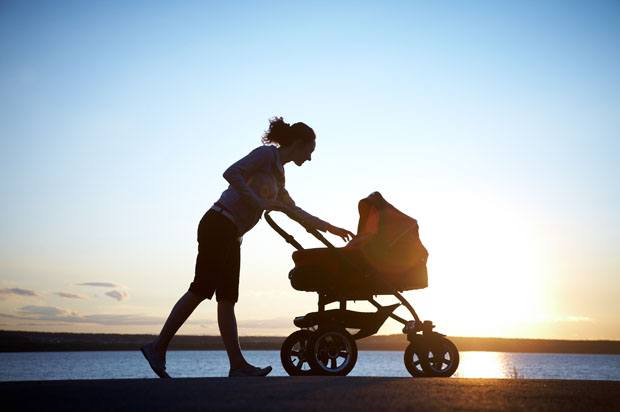Being a dad: Preparing for fatherhood
Preparing for fatherhood and being a dad will be a big change compared to your life so far. Not only do you have to wrap your head around being responsible for a whole other human, but you also have to be there for your partner. Here's how to play your part.

Supporting your partner during the pregnancy
Your input doesn’t stop when the pregnancy test comes back positive. Preparing for fatherhood impacts all aspects of your life. You’re both facing nine months of expectation and preparation, after all. You may not be carrying the baby, but there’s a great deal you can do to lighten the load of the pregnant woman. Here are a few of them:
- Make an effort to communicate: Expectant mothers differ in their needs during pregnancy, which is why you need to talk. Aim to know what’s going on inside your partner’s mind and make sure they know you’re there for them – whatever they need.
- Voice your own feelings, too: Facing parenthood can be just as daunting for you, so don’t bottle up any emotions. Often, just venting about your frustrations and anxieties can help you get to grips with the situation.
- Make life easier for her: From morning sickness to fatigue, she needs your support during this time. It might be a case of simply paying more attention to her needs. Maybe even taking over some extra jobs around the house. The main thing is that she feels like she can turn to you when things get overwhelming. Maybe even reach out to some of her family and friends for some extra help.
- Consider antenatal classes: Becoming a parent doesn’t come with an instruction manual, which is why antenatal classes make a fine supplement when it comes to preparing for fatherhood. It’s also a chance to meet other young parents-to-be, and share experiences. You can visit your local doctor’s surgery for details of your nearest class.
Preparing for fatherhood as the birth approaches
With the due date looming, don’t just sit back and wait for the big moment. Being a dad doesn’t just start by trying to bond with your baby. Once the baby arrives, all that free time you had will disappear so this is a great time to get a head start. To help you out, we’ve suggested some ways to help make the most of that time:
- Consider what the baby will need: From a crib to countless nappies, clothes and a car seat, don’t sit back and assume it’s all taken care of – draw up a list together, in case one of you has forgotten something.
- Baby proofing: Make sure your home is safe for your baby by putting sharp objects out of reach, removing things that could fall onto the baby and covering up plug sockets.
- Discuss the birth plan: This is basically a written outline of how your partner would like to manage their labour and the baby’s delivery. A copy of the birth plan should be given to the midwife who will endeavour to respect your wishes, though of course the health and welfare of both mother and child take priority.
Hospital plans
You have to know what the plans are when you get to the hospital. Here are a few things to consider:
- Be ready to go: If you’re planning on being present at the birth, make sure you’re able to attend at a moment’s notice. Giving a neighbour, friend or nearby family member a key to your place can provide peace of mind. Also check out your rights to paternity leave. You can find out more about that here.
- Sort out your stuff: Expectant mums are always encouraged to have a bag packed so they’re ready to leave for hospital at a moment’s notice, and expectant fathers should think along the same lines.
- Take care of transport: In the event of a dash to hospital, how do you plan to travel? If you’re driving, know your routes, be sure there’s fuel in the tank. Alternatively, keep the taxi apps on your phone to hand and look up a local service as a backup. You should also check in advance that they won’t come over all precious about their upholstery and refuse to take a woman in labour.
After the birth
That’s our guide to preparing for being a dad, but there are a lot of things that you simply can’t prepare for; the lack of sleep and the total disruption to your regular routine (including your sex life) in the early days. You may even have to support your partner through postnatal depression as well as pregnancy and birth. With all that said, we’re here to help. If you need some extra advice for new parents, just read this article.
Next Steps
- Chat about this subject on our Discussion Boards.
By Nishika Melwani
Updated on 26-Nov-2021
No featured article














